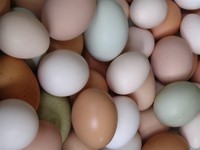The Weblog

This page contains news, event information, and other items added by the market managers, including the weekly availability email. Be sure to check back regularly!
Opening Bell
This post expired on November 25, 2022.
Greetings Conway Locally Grown Community,
Hope you had a wonderful thanksgiving! Our nation’s ailing food system was the subject of discussion at my house, and I wanted to share these thoughts with you.
Many critics of local food, organic food, or small-scale agriculture point out that this kind of food is pricy and elitist. Perhaps some of you have come across items offered through Conway Locally Grown that you felt were too expensive, or at least more expensive than the groceries at conventional food markets. I would like to offer an argument to you that justifies paying a little more for your food, and the argument requires understanding the difference between price and cost. Conventional, industrial foods may be offered at a lower price, but that is only because the true costs of the production and consumption of industrial food are not reflected in the price you pay at the register.
Consider the fact that Americans have been spending a smaller and smaller percentage of their income on food each decade since the industrial agricultural revolution of the mid 20th century. Now consider also the reverse trend in the increasing rates of obesity, diabetes, heart disease, and other diet related illnesses. Does it make sense for us to be saving money producing and consuming lesser quality foods, only to turn around and spend that money on our increasing health care costs? Of course correlation does not imply causation, and there are many factors that contribute to our declining health as a nation, but poor diet is surely among the culprits.
In addition to health costs, environmental and social costs are also left out of the price of industrial foods. Industrial agriculture uses chemically and mechanically intensified production methods that erode our soils and poison our waterways. The centralized organization of corporate agriculture also tends to concentrate wealth and prevent the growth of local and rural economies. If one were to account for all the costs of food production and consumption, one quickly realizes that there is no such thing as cheap food. I’m not suggesting that the more you spend on your food, the healthier you’ll be. Many foods are expensive simply because of the difficult nature of their production. I am suggesting, however, that you think of the food you are eating as an investment in your personal health, the health of your family, the health of the environment, and the health of society. Isn’t avoiding the costs of losing these things worth paying a slightly higher price for good food?
The market is now open. Remember to hit the checkout button when you’re finished, and you will receive a confirmation email when your order is placed. Thank you for investing in the health of your community.
Have a great day,
Gabe Levin


